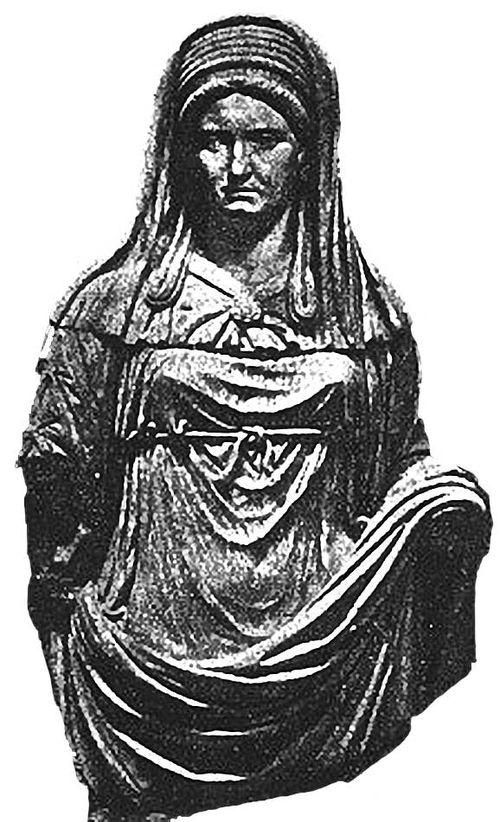Deaconnoun
(Church history) A designated minister of charity in the early Church (see Acts 6:1-6).
Deaconnoun
(Orthodoxy and Roman Catholicism) A clergyman ranked directly below a priest, with duties of helping the priests and carrying out parish work.
Deaconnoun
(Protestantism) Free Churches: A lay leader of a congregation who assists the pastor.
Deaconnoun
(Protestantism) Anglicanism: An ordained clergyman usually serving a year prior to being ordained presbyter, though in some cases they remain a permanent deacon.
Deaconnoun
(Protestantism) Methodism: A separate office from that of minister, neither leading to the other; instead there is a permanent deaconate.
Deaconnoun
(freemasonry) A junior lodge officer.
Deaconnoun
(Mormonism) The lowest office in the Aaronic priesthood, generally held by 12 or 13 year old boys or recent converts.
Deaconnoun
A male calf of a dairy breed, so called because they are usually deaconed (see below).
Deaconnoun
(Scotland) The chairman of an incorporated company.
Deaconverb
For a choir leader to lead a hymn by speaking one or two lines at a time, which are then sung by the choir.
Deaconverb
To kill a calf shortly after birth.
Deaconverb
To place fresh fruit at the top of a barrel or other container, with spoiled or imperfect fruit hidden beneath.
Deaconverb
To make sly alterations to the boundaries of (land); to adulterate or doctor (an article to be sold), etc.
Deaconnoun
An officer in Christian churches appointed to perform certain subordinate duties varying in different communions. In the Roman Catholic and Episcopal churches, a person admitted to the lowest order in the ministry, subordinate to the bishops and priests. In Presbyterian churches, he is subordinate to the minister and elders, and has charge of certain duties connected with the communion service and the care of the poor. In Congregational churches, he is subordinate to the pastor, and has duties as in the Presbyterian church.
Deaconnoun
The chairman of an incorporated company.
Deaconverb
To read aloud each line of (a psalm or hymn) before singing it, - usually with off.
Deaconverb
With humorous reference to hypocritical posing: To pack (fruit or vegetables) with the finest specimens on top; to alter slyly the boundaries of (land); to adulterate or doctor (an article to be sold), etc.
Deaconnoun
a Protestant layman who assists the minister
Deaconnoun
a cleric ranking just below a priest in Christian churches; one of the Holy Orders
Deacon
A deacon is a member of the diaconate, an office in Christian churches that is generally associated with service of some kind, but which varies among theological and denominational traditions. Major Christian churches, such as the Catholic Church, the Oriental Orthodox Churches, the Eastern Orthodox Church, the Scandinavian Lutheran Churches and the Anglican Church, including the Free Church of England, view the diaconate as part of the clerical state.
Priestnoun
a religious clergyman (clergywoman, clergyperson) who is trained to perform services or sacrifices at a church or temple
Priestnoun
a blunt tool, used for quickly stunning and killing fish
Priestnoun
(Mormonism) the highest office in the Aaronic priesthood
Priestverb
(transitive) To ordain as a priest.
Priestnoun
A presbyter elder; a minister
Priestnoun
One who officiates at the altar, or performs the rites of sacrifice; one who acts as a mediator between men and the divinity or the gods in any form of religion; as, Buddhist priests.
Priestverb
To ordain as priest.
Priestnoun
a clergyman in Christian churches who has the authority to perform or administer various religious rites; one of the Holy Orders
Priestnoun
a spiritual leader in a non-Christian religion
Priestnoun
an ordained minister of the Catholic, Orthodox, or Anglican Church, authorized to perform certain rites and administer certain sacraments
Priestnoun
a person who performs religious ceremonies and duties in a non-Christian religion
Priestnoun
a mallet used to kill fish caught when angling.
Priestverb
ordain to the priesthood
Priest
A priest is a religious leader authorized to perform the sacred rituals of a religion, especially as a mediatory agent between humans and one or more deities. They also have the authority or power to administer religious rites; in particular, rites of sacrifice to, and propitiation of, a deity or deities.



























